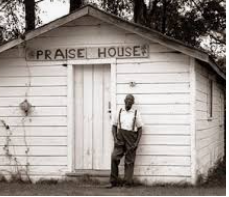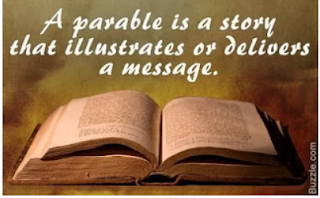Tues/ Wed, Jan 19/20 Born a Crime preamble chap 3 and Gullah connection
IMPORTANT: the last day to turn in any late work for this quarter is Friday, January 22 at midnight. Nothing submitted after will be accepted. The material beginning Monday, January 25 will go into the 3rd quarter.
Assignment: After having watched the Gullah video as a class, rewatch a second time and list 8 take aways from that you have learned about this vibrant culture. Use the graphic organizer below. When you have finished, share (dorothy.parker@rcsdk12org or 2006630. This is due by 6 pm Wednesday or midnight, if you receive extended time.
The Penn School, one of the country's first schools for formerly enslaved individuals.
Penn Center is one of the most significant African American historical and cultural institutions in existence today. We are located on St. Helena Island, one of the most beautiful and historically distinct of the South Carolina Sea Islands, and at the heart of Gullah culture.
"We adopted the religion of our colonizers, but most people held on to the old ancestral ways, too, just in case. In South Africa, faith in the Holy Trinity exists quite comfortably alongside belief in witchcraft, in casting spells and putting curses on one’s enemies." Trevor Noah
preamble to chapter 3: page 28 text
Gullah history and culture 6:05
What I have learned about the Gullah communities of the sea islands of the southern US |
1. |
2. |
3. |
4. |
5. |
6. |
7. |
8. |
Preamble to chapter 3
South Africa is a mix of the old and the new, the ancient and the modern, and South African Christianity is a perfect example of this. We adopted the religion of our colonizers, but most people held on to the old ancestral ways, too, just in case. In South Africa, faith in the Holy Trinity exists quite comfortably alongside belief in witchcraft, in casting spells and putting curses on one’s enemies.
I come from a country where people are more likely to visit sangomas—shamans, traditional healers, pejoratively known as witch doctors—than they are to visit doctors of Western medicine. I come from a country where people have been arrested and tried for witchcraft—in a court of law. I’m not talking about the 1700s. I’m talking about five years ago. I remember a man being on trial for striking another person with lightning. That happens a lot in the homelands. There are no tall buildings, few tall trees, nothing between you and the sky, so people get hit by lightning all the time. And when someone gets killed by lightning, everyone knows it’s because somebody used Mother Nature to take out a hit. So if you had a beef with the guy who got killed, someone will accuse you of murder and the police will come knocking.
“Mr. Noah, you’ve been accused of murder. You used witchcraft to kill David Kibuuka by causing him to be struck by lightning.”
“What is the evidence?”
“The evidence is that David Kibuuka got struck by lightning and it wasn’t even raining.”
And you go to trial. The court is presided over by a judge. There is a docket. There is a prosecutor. Your defense attorney has to prove lack of motive, go through the crime-scene forensics, present a staunch defense. And your attorney’s argument can’t be “Witchcraft isn’t real.” No, no, no. You’ll lose.
The Penn School, one of the country's first schools for formerly enslaved individuals.
Penn Center is one of the most significant African American historical and cultural institutions in existence today. We are located on St. Helena Island, one of the most beautiful and historically distinct of the South Carolina Sea Islands, and at the heart of Gullah culture.
"We adopted the religion of our colonizers, but most people held on to the old ancestral ways, too, just in case. In South Africa, faith in the Holy Trinity exists quite comfortably alongside belief in witchcraft, in casting spells and putting curses on one’s enemies." Trevor Noah
In class: we are reading the preamble to chapter 3. The cutural connection here are Gullah Geechee people of the United States (See the maps above) and how Trevor Noah's words in the preamble are reflective of this vibrant community today.
preamble to chapter 3: page 28 text
Gullah history and culture 6:05
The Penn School, one of the country's first schools for formerly enslaved individuals.
Penn Center is one of the most significant African American historical and cultural institutions in existence today. We are located on St. Helena Island, one of the most beautiful and historically distinct of the South Carolina Sea Islands, and at the heart of Gullah culture.
"We adopted the religion of our colonizers, but most people held on to the old ancestral ways, too, just in case. In South Africa, faith in the Holy Trinity exists quite comfortably alongside belief in witchcraft, in casting spells and putting curses on one’s enemies." Trevor Noah
In class: we are reading the preamble to chapter 3. The cutural connection here are Gullah Geechee people of the United States (See the maps above) and how Trevor Noah's words in the preamble are reflective of this vibrant community today.
preamble to chapter 3: page 28 text
Gullah history and culture 6:05
Assignment: After having watched the Gullah video as a class, rewatch a second time and list 8 take aways from that you have learned about this vibrant culture. Use the graphic organizer below. When you have finished, share (dorothy.parker@rcsdk12org or 2006630. This is due by 6 pm Wednesday or midnight, if you receive extended time.
What I have learned about the Gullah communities of the sea islands of the southern US |
1. |
2. |
3. |
4. |
5. |
6. |
7. |
8. |
Preamble to chapter 3
South Africa is a mix of the old and the new, the ancient and the modern, and South African Christianity is a perfect example of this. We adopted the religion of our colonizers, but most people held on to the old ancestral ways, too, just in case. In South Africa, faith in the Holy Trinity exists quite comfortably alongside belief in witchcraft, in casting spells and putting curses on one’s enemies.
I come from a country where people are more likely to visit sangomas—shamans, traditional healers, pejoratively known as witch doctors—than they are to visit doctors of Western medicine. I come from a country where people have been arrested and tried for witchcraft—in a court of law. I’m not talking about the 1700s. I’m talking about five years ago. I remember a man being on trial for striking another person with lightning. That happens a lot in the homelands. There are no tall buildings, few tall trees, nothing between you and the sky, so people get hit by lightning all the time. And when someone gets killed by lightning, everyone knows it’s because somebody used Mother Nature to take out a hit. So if you had a beef with the guy who got killed, someone will accuse you of murder and the police will come knocking.
“Mr. Noah, you’ve been accused of murder. You used witchcraft to kill David Kibuuka by causing him to be struck by lightning.”
“What is the evidence?”
“The evidence is that David Kibuuka got struck by lightning and it wasn’t even raining.”
And you go to trial. The court is presided over by a judge. There is a docket. There is a prosecutor. Your defense attorney has to prove lack of motive, go through the crime-scene forensics, present a staunch defense. And your attorney’s argument can’t be “Witchcraft isn’t real.” No, no, no. You’ll lose.
What I have learned about the Gullah communities of the sea islands of the southern US |
1. |
2. |
3. |
4. |
5. |
6. |
7. |
8. |
Preamble to chapter 3
South Africa is a mix of the old and the new, the ancient and the modern, and South African Christianity is a perfect example of this. We adopted the religion of our colonizers, but most people held on to the old ancestral ways, too, just in case. In South Africa, faith in the Holy Trinity exists quite comfortably alongside belief in witchcraft, in casting spells and putting curses on one’s enemies.
I come from a country where people are more likely to visit sangomas—shamans, traditional healers, pejoratively known as witch doctors—than they are to visit doctors of Western medicine. I come from a country where people have been arrested and tried for witchcraft—in a court of law. I’m not talking about the 1700s. I’m talking about five years ago. I remember a man being on trial for striking another person with lightning. That happens a lot in the homelands. There are no tall buildings, few tall trees, nothing between you and the sky, so people get hit by lightning all the time. And when someone gets killed by lightning, everyone knows it’s because somebody used Mother Nature to take out a hit. So if you had a beef with the guy who got killed, someone will accuse you of murder and the police will come knocking.
“Mr. Noah, you’ve been accused of murder. You used witchcraft to kill David Kibuuka by causing him to be struck by lightning.”
“What is the evidence?”
“The evidence is that David Kibuuka got struck by lightning and it wasn’t even raining.”
And you go to trial. The court is presided over by a judge. There is a docket. There is a prosecutor. Your defense attorney has to prove lack of motive, go through the crime-scene forensics, present a staunch defense. And your attorney’s argument can’t be “Witchcraft isn’t real.” No, no, no. You’ll lose.











Comments
Post a Comment